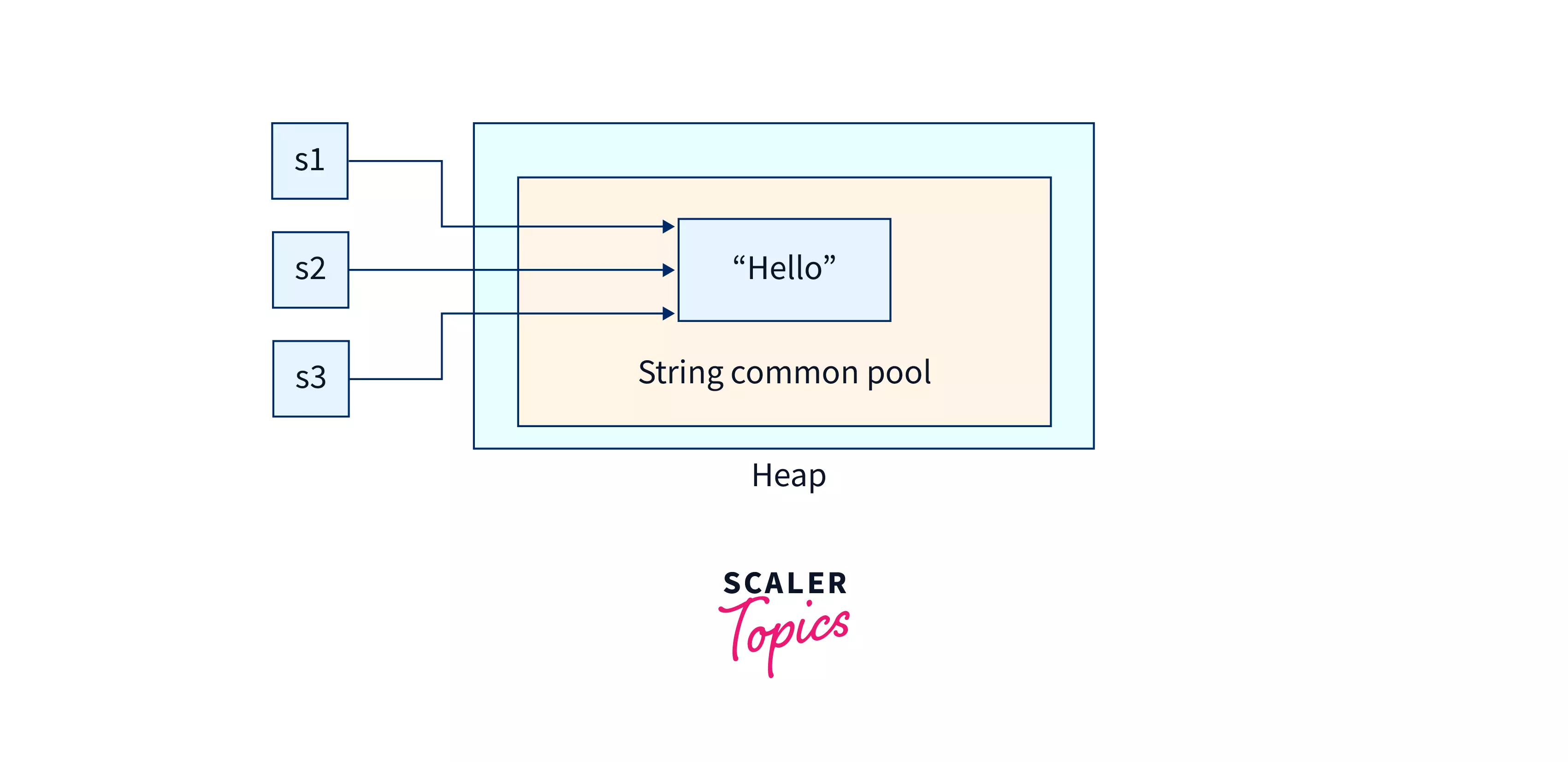What Is Unalterable Strings and Exactly How It Works
In the realm of shows, recognizing the idea of immutable strings is extremely important for creating durable and safe applications. Unalterable strings describe strings that can not be changed after they are produced, guaranteeing data integrity and predictability within the code. This basic principle plays a vital role in numerous programs languages and uses a distinct approach to taking care of information. By checking out the intricacies of just how immutable strings operate, one can discover a globe of benefits and possibilities that can raise the quality and effectiveness of software advancement.
The Basics of Unalterable Strings
Unalterable strings, as a fundamental concept in shows, are personality series that can not be transformed as soon as they are developed. This means that once a string is assigned a value, that worth can not be changed. In languages like Python and Java, strings are unalterable things, causing various implications in regards to memory administration and information stability.
Among the key benefits of immutable strings is that they provide a complacency in data manipulation. Because the content of an unalterable string can not be customized, it guarantees that the original information stays undamaged, reducing the danger of unplanned adjustments during program execution (Why are strings immutable in Java?). This building also simplifies debugging processes, as programmers can trust that as soon as a string is defined, its value will certainly not be accidentally changed
When a new string is created based on an existing one, instead than customizing the initial string, the brand-new value is saved independently. On the whole, recognizing the fundamentals of unalterable strings is essential for grasping shows principles and enhancing code efficiency.
Advantages of Immutable Strings
Structure upon the security and efficiency advantages of unalterable strings, their benefits reach boosting code integrity and streamlining concurrent programming tasks. By being immutable, strings can not be customized after creation, which removes the threat of unintentional modifications in the information they keep. This intrinsic immutability makes sure that once a string is created, its value remains consistent throughout the program's implementation, decreasing the opportunities of insects brought on by unexpected alterations.
In addition, unalterable strings add to code dependability by making it simpler to reason about the state of a program. Considering that strings can not be changed, programmers can trust that a string will certainly constantly hold the exact same value, simplifying debugging and maintenance initiatives. This predictability results in a lot more dependable and secure codebases.

Application in Shows Languages
Within various programs languages, the unification of immutable strings is a fundamental aspect that affects how information is taken care of and adjusted within code structures. The execution of immutable strings differs throughout different shows languages, with each language providing its very own devices to sustain this idea.

In contrast, languages like C and C++ do not have integrated assistance for unalterable More hints strings. Programmers in these languages should manually carry out immutability by imposing regulations within their code to avoid straight modifications to string things.
Ideal Practices for Collaborating With Unalterable Strings
When dealing with immutable strings in programming languages like Java and Python, adhering to best techniques makes certain secure and reliable information control. Among the vital best practices is to use StringBuilder or StringBuffer rather of directly adjusting strings, particularly when website here managing comprehensive concatenation operations. These courses supply mutable choices for string control, aiding to avoid unnecessary memory allotments and boosting performance.
One more best method is to utilize string interpolation or formatting functions provided by the language as opposed to hands-on concatenation. This not only boosts readability yet likewise help in protecting against typical pitfalls such as unintended string alterations. Furthermore, when collaborating with delicate information such as passwords or API secrets, it is critical to prevent keeping them as ordinary text in unalterable strings. Making use of safe and secure storage devices like char selections or specialized collections for taking care of delicate info assists reduce protection threats related to immutable strings.
Real-world Applications and Examples
Discovering sensible implementations of unalterable strings in different markets reveals their considerable effect on data integrity and system dependability. In the health care field, immutable strings play a vital duty in guaranteeing the security and privacy of client data. By stopping unapproved alterations to sensitive details such as clinical records and prescriptions, immutable strings assist preserve compliance with rigorous personal privacy regulations like HIPAA.
Economic establishments likewise benefit from the immutable nature of strings to boost the security of customer information and transaction records. Immutable strings help prevent fraud and unauthorized alterations to financial details, providing a robust protection versus cyber dangers and making sure the trust and self-confidence of clients.

Conclusion
Finest techniques have a peek at this site for functioning with unalterable strings include avoiding direct adjustments and making use of approaches that return brand-new string items. Real-world applications of unalterable strings include information security, caching, and string adjustment jobs.
Unalterable strings refer to strings that can not be altered after they are created, ensuring information honesty and predictability within the code. When a new string is created based on an existing one, instead than changing the original string, the brand-new value is kept independently.In languages like Java and Python, strings are immutable by default, suggesting that once a string things is created, its worth can not be transformed - Why are strings immutable in Java?. Ideal techniques for working with unalterable strings include preventing direct modifications and using methods that return brand-new string objects. Real-world applications of unalterable strings consist of information encryption, caching, and string adjustment jobs
Comments on “Why Are Strings Immutable in Java? Comprehensive Overview for Beginners”